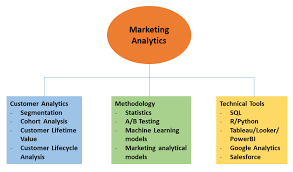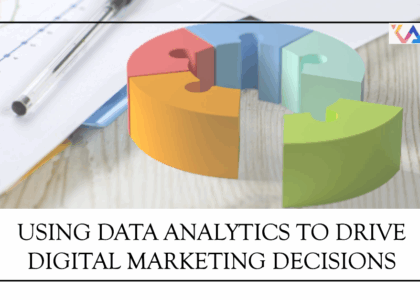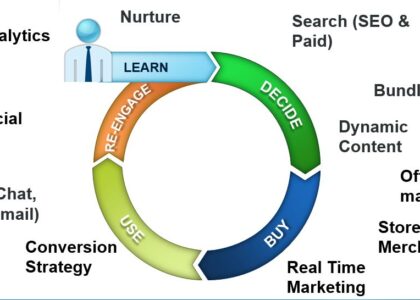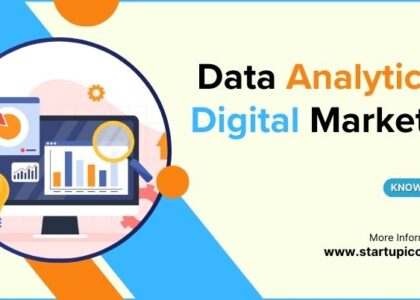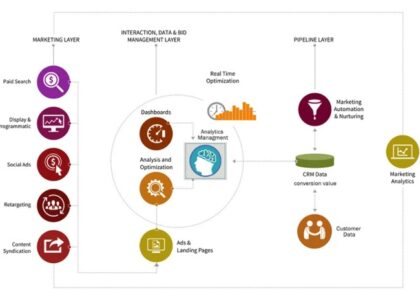The Power of Data Science in Marketing Analytics
In today’s digital age, data has become a valuable asset for businesses looking to gain insights and make informed decisions. When it comes to marketing, the use of data science has revolutionised the way companies analyse and utilise data to drive successful campaigns and strategies.
Understanding Customer Behaviour
Data science enables marketers to delve deep into customer behaviour patterns and preferences. By analysing vast amounts of data collected from various sources such as social media, website interactions, and purchase history, marketers can gain a comprehensive understanding of their target audience.
Personalised Marketing Campaigns
With the help of data science techniques like machine learning and predictive analytics, marketers can create highly personalised marketing campaigns. By segmenting customers based on their preferences and past interactions, businesses can deliver targeted messages that resonate with individual customers, leading to higher engagement and conversion rates.
Optimising Marketing ROI
Data science plays a crucial role in measuring the effectiveness of marketing campaigns. Through advanced analytics tools, marketers can track key performance indicators (KPIs) in real-time and adjust their strategies accordingly. This iterative approach helps businesses optimise their marketing ROI by focusing on tactics that deliver the best results.
Predictive Modelling for Future Trends
One of the most powerful applications of data science in marketing is predictive modelling. By analysing historical data and identifying patterns, marketers can forecast future trends and anticipate customer needs. This proactive approach allows businesses to stay ahead of the competition and tailor their offerings to meet evolving market demands.
Conclusion
Data science has transformed marketing analytics by providing valuable insights that drive strategic decision-making and enhance customer experiences. Businesses that leverage data science capabilities are better equipped to understand their target audience, create personalised campaigns, optimise ROI, and predict future trends. In today’s competitive landscape, harnessing the power of data science is essential for success in marketing.
Five Key Benefits of Data Science in Marketing Analytics: Gaining Customer Insights, Personalising Campaigns, Boosting ROI, Leveraging Predictive Analytics, and Achieving a Competitive Edge
- 1. Enhanced Customer Insights
- 2. Personalised Marketing Campaigns
- 3. Improved ROI
- 4. Predictive Analytics
- 5. Competitive Advantage
Challenges in Data Science for Marketing Analytics: Complexity, Cost, Privacy Concerns, and Overreliance
1. Enhanced Customer Insights
Data science empowers marketers to unlock enhanced customer insights by delving into intricate details of customer behaviour and preferences. Through sophisticated data analysis techniques, businesses can extract valuable information from vast datasets, allowing them to tailor marketing strategies with precision and relevance. By leveraging data science for marketing analytics, companies can anticipate customer needs, personalise interactions, and ultimately cultivate stronger relationships with their target audience based on a profound understanding of their preferences and behaviours.
2. Personalised Marketing Campaigns
By harnessing the power of data science, marketers have the ability to develop personalised marketing campaigns that are finely tuned to resonate with each individual customer. Through sophisticated data analysis techniques, such as machine learning and predictive analytics, businesses can segment their target audience based on preferences and past interactions. This tailored approach not only enhances customer engagement but also increases the likelihood of conversions, ultimately leading to more effective and successful marketing strategies.
3. Improved ROI
Data science brings a significant advantage to marketing analytics through improved ROI. By utilising data science techniques, businesses can enhance their marketing strategies by monitoring performance metrics in real-time and leveraging data-driven insights to make informed decisions. This proactive approach enables companies to optimise their marketing efforts efficiently, focusing on tactics that deliver the best results and ultimately maximising their return on investment.
4. Predictive Analytics
By utilising predictive analytics in data science for marketing analytics, marketers gain the ability to forecast upcoming trends and understand customer requirements through advanced predictive modelling. This empowers them to take a proactive approach in planning marketing campaigns that are tailored to meet future demands, ultimately enhancing strategic decision-making and ensuring businesses stay ahead of the curve in a dynamic marketplace.
5. Competitive Advantage
Businesses that harness the power of data science for marketing analytics gain a significant competitive advantage by proactively staying ahead of market trends and meeting evolving customer expectations. By leveraging advanced data analysis techniques, these businesses can make informed decisions, tailor their strategies to align with changing consumer preferences, and outperform competitors in delivering targeted and personalised marketing campaigns. This proactive approach not only enhances customer engagement and loyalty but also positions the business as a leader in its industry, driving sustainable growth and success.
Complexity
Implementing data science for marketing analytics can present a significant challenge due to its inherent complexity and the need for specialised expertise. Many businesses may struggle to fully utilise the potential of data science in their marketing strategies because of the technical know-how required. The intricate processes involved in data collection, analysis, and interpretation can be daunting for organisations without access to skilled professionals in this field. As a result, the complexity of integrating data science into marketing analytics poses a barrier for some businesses seeking to harness its benefits effectively.
Cost
Data science projects for marketing analytics can present a significant challenge in terms of cost. The expenses involved, including investments in technology, sophisticated tools, and highly skilled professionals, can pose a barrier to many businesses looking to leverage data science for their marketing strategies. The financial commitment required to execute data science projects effectively can be daunting, limiting access to smaller companies with limited resources and budgets. As a result, the high cost associated with implementing data science solutions may hinder some organisations from fully realising the benefits and insights that such advanced analytics can offer in enhancing their marketing efforts.
Data Privacy Concerns
The con of data science for marketing analytics lies in the realm of data privacy concerns. The utilisation of customer data in marketing analytics can trigger apprehensions about privacy among consumers, potentially resulting in backlash and regulatory hurdles for businesses. As companies collect and analyse vast amounts of personal information to enhance their marketing strategies, the delicate balance between leveraging data insights and respecting individual privacy rights becomes a critical issue that requires careful navigation and ethical considerations.
Overreliance on Data
Overreliance on data in marketing analytics can present a significant drawback, as it may stifle creativity and intuition in developing marketing strategies. While data-driven insights are valuable for making informed decisions, an excessive dependence on data alone could hinder the exploration of innovative ideas and unique approaches. This overreliance may restrict the potential for differentiation in marketing campaigns, as purely data-led strategies may overlook the human element and emotional nuances that can often drive customer engagement and brand loyalty. Balancing data-driven insights with creative thinking and intuition is essential to foster innovation and maintain a competitive edge in the dynamic landscape of marketing.


